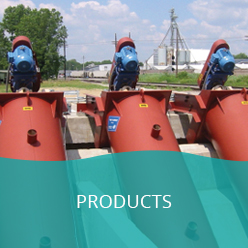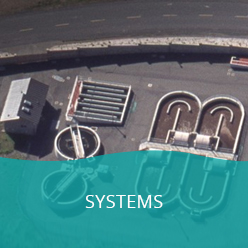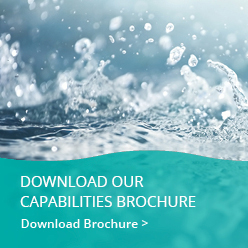Here’s a concerning statistic. There are more than 16,000 wastewater treatment plants in the U.S. and many of them are at 81% of their capacity. About one out of five are at or over their max capacity. When a facility is at max capacity, untreated wastewater ends up flowing into lakes, rivers, and streams where people and animals are exposed to it.
In 2019, districts across the nation spent more than $3 billion on upgrades or repairs to pipelines. The gap in what was needed was around $81 billion. Recent grants and funding promise to help with some of this, but there are still many districts that have an impossible choice. Do you repair your district’s system again and hope it lasts or is it time for upgrades?
How Long Has Your Wastewater Treatment Plant Been Operational?
On average, a wastewater treatment plant is designed for no more than 50 years before changes are necessary. As the populations in towns and cities increase, more wastewater goes to a plant, and that means the existing equipment may not be enough. If more wastewater is coming in than the equipment is able to process, the release of untreated wastewater is going to happen.
Are the fines you’ll face from the EPA or your state government worth it? These fines may end up costing more than upgrades would cost. Take a look at some of the recent fines issued to wastewater treatment plants in the U.S.
- Alabama – $250,000
- California – $816,000
- Connecticut – $2.4 million
- Indiana – $3 million
- Michigan – $100,000
- New Mexico – $1.2 million
One thing to remember is that many of the fines also come with the requirement that you make the required upgrades or repairs. You end up having to pay even more, and your wastewater district members may not like the rate hikes that are required to cover these urgent fixes.
When Do You Repair Instead of Upgrade?
It’s clear that something has to change. When should you repair rather than pay for upgrades? The most important reason to repair is that your budget is limited. No one wants to scrape along with older equipment, but if there’s simply not enough money for upgraded equipment, repairs will have to suffice for now. What other situations call for repairs over upgrades?
- Your Equipment Isn’t Too Old
If your equipment is still newer, it’s not always smart to replace it yet. It still has a lot of life left, so repair whatever isn’t working effectively. If a pump blows, it’s better to replace the pump than an entire system.
- You Don’t Have Time for Replacements
It may not be the right season to be shutting down part of your wastewater treatment plant. It’s winter, and more people are at home and taking warm baths at night, so wastewater generation is higher than it is in the summer. Your town might be a popular spot for tourists, and once the summer tourism season ends, wastewater generation will drop by more than half. If you need to repair now to buy time until less wastewater is being generated, wait until then.
- Funding Isn’t In Place Yet
You may have applied for grants to pay for new wastewater treatment equipment, but the grant money isn’t being distributed until the third quarter. You can’t hold off yet, so make just enough repairs to carry you over and then replace equipment when you have funding.
When Should You Upgrade?
Before you even experience fines, when should you consider upgrades? Here are five reasons to upgrade.
- Energy Costs Are Rising
Your bills keep rising, and the people in your district are not happy about it. This can be a sign that pumps and motors are working more than in the past. Upgrading to more energy-friendly pumps and motors will cost money, but the amount you save on energy bills makes it worthwhile.
You can also consider upgrades to help power your plant. Add a system that converts the methane your plant produces into fuel to heat to cut your heating bills. Look into solar panels and wind turbines to help produce the energy your plant needs to run.
- Equipment Breaks Down Frequently
Your equipment seems to break down every month. When that happens, you have to stop the treatment process or lower the capacity, which puts you at risk of flooding and raw sewage releases. If you’re spending more time on repairs than you have in the past, it’s time to look into upgraded, maintenance-free wastewater treatment equipment.
- The Population Is Rising Faster Than Expected
Your town should be considering the added wastewater generation when new construction is considered, but you can’t always control how many people move into a new home. You also can’t control how many showers or baths a person takes each day. You will have the people who take a bath and two showers every day without realizing how much extra wastewater they’re generating. If the wastewater generation is more than planned, you could find yourself quickly reaching capacity.
By building a system that’s larger than needed, you help allow for growth. If more people moved into a new development than you expected, you still have plenty of capacity for the increase. You do need to closely monitor this throughout the year and remain in contact with the city planners.
- Treatment Standards Have Changed
Wastewater treatment standards change from time to time. As the guidelines regarding the max levels of a certain component change, you need to meet or exceed the changing guidelines. This may mean having upgraded equipment that’s able to filter the wastewater to the appropriate levels.
- Your Wastewater Treatment Plant is At Capacity
When your wastewater treatment plant is at or very close to capacity, it’s time to upgrade your equipment. You can’t risk the fines you’ll get by releasing raw sewage. You have systems in place to monitor how much wastewater is treated and flows into your plant, keep track of these numbers, and address issues sooner rather than later.
- You’ve Been Warned the Repairs Won’t Last Long
You might save a lot of money with repairs, but you’ve been told that the repair is only going to carry your plant for a month or two. If you have to pay for the same repair weeks from now, why keep spending money? Pay for the upgrade once and avoid all of the extra repair costs.
Discuss Your Options
Sometimes, the costs of repairs vs. upgrades are not as different as you might imagine. Talk to an expert in wastewater treatment plants to find out how much it would cost to repair equipment vs. replace it. You may find that it ends up being more affordable to replace equipment. Plus, there may be incentives that you can apply for to help cover some of the cost of the infrastructure upgrades you need. If you’re saving your district’s members money in the long run, they’ll appreciate it.
Lakeside Equipment offers cost-effective upgrades if that suits your district better. Or, work with our team on repairs that provide the efficiency and effectiveness you need. Water treatment is our specialty and it’s one we’ve been involved in since 1928. Our mission remains to have Cleaner Water for a Brighter Future. Talk to us to learn more about the ways you can join us on that mission.








